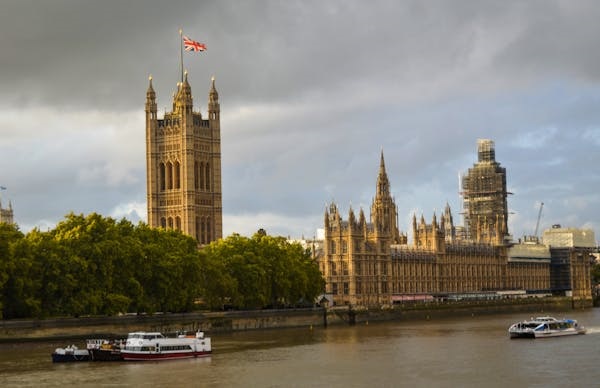Inheritance tax to apply to all offshore trusts and non-dom status abolished completely are among the details emerging from the publication of the UK Labour Party’s manifesto today (13 June), as industry experts give their early reactions to policy pledges very likely to feature under the next government if the polls are anything to go by.
James Quarmby, founding partner, Private Wealth team at Stephenson Harwood said on LinkedIn: “In an otherwise boring manifesto we do have mention of non-doms and it says “we will abolish non dom status once and for all, replacing it with a modern scheme for people genuinely in the country for a short period”.
“Note it doesn’t specify what “short” means, leaving wiggle room for moving away from the 4 year period presently on the table.
“Unhelpfully, it also states “we will end the use of offshore trusts to avoid IHT so that everyone who makes their home here in the U.K. pays their taxes here”. That seems pretty definitive and, even worse, buried away in a footnote on their spending commitments it’s stated that that an additional £600m will be raised by “removing the non dom discount loophole in 2025-26”.
“This is odd wording (“discount loophole” – what on earth is that?) and refers (we think) to the grandfathering offered by Jeremy Hunt in his Budget.
“So, there you have it – IHT on all trusts, regardless of when created. That’s not great news at all. Sorry about that. Not sure why I’m apologising as I didn’t write the manifesto…”
Rachael Griffin, tax and financial planning expert at Quilter said: “The conspicuous lack of confirmation from the Labour manifesto that it would not raise Capital Gains Tax (CGT) will spark significant concern among entrepreneurs and investors in the UK. Both Shadow Chancellor, Rachel Reeves, and Sir Keir Starmer have in recent interviews doubled down on the fact they have “no plans” to increase CGT rates without completely ruling it out. However, in its manifesto Labour has explicitly ruled out increases to income tax, National Insurance, VAT and corporation tax, but make no mention of CGT.
“Those who face CGT in the UK – primarily higher rate taxpayers and entrepreneurs who realise gains from the sale of residential property, investments, and other chargeable assets – have already seen their annual exempt allowance slashed by the current Conservative government to just £3,000 a year. If Labour is to win the general election and then increase rates, it would serve as a double whammy with higher rates and lower exempt allowances considerably increasing the capital gains tax take.
“Under the current system, higher rate taxpayers face a 24% CGT on residential property gains and 20% on other chargeable assets. The potential alignment of CGT rates with income tax rates, if that is what ends up being enacted, could see these figures rise dramatically, impacting not just the wealthy but also a substantial number of small business owners and investors who play a crucial role in driving the economy in the UK.
“For those looking to mitigate the impact of CGT there are several strategies you can employ. Transferring assets to a spouse can be an effective way to maximise the use of both partners’ CGT allowance. Additionally, utilising tax-sheltered accounts such as ISAs can shield gains from CGT altogether. It has therefore never been more important to maximise your £20,000 ISA allowance. Other more complex options include deferring gains by investing in Enterprise Investment Schemes (EIS) however these carry significant risk and it’s important to get professional financial help when looking at these types of options.”
David Brooks, head of policy at independent consultancy Broadstone said: “Labour’s manifesto contained no notable big-ticket ideas for the pensions’ sector, confirming plans to progress with the productive finance agenda and encourage further consolidation in the workplace pension market.
“The Party has pledged a wide-ranging “pensions review” to improve outcomes, but the devil will be in the detail as to what that covers before we can anticipate any potential outcomes.
“Labour has also, as expected, committed to the State Pension triple-lock and there now seems to be political consensus that this is untouchable. The encouragement for green-focused investments also appears to have achieved cross-party consensus.
“The push for productive finance comes with a caution warning as there may be a disappointing uptake from defined benefit schemes but an ongoing review into VFM may allow more schemes to allocate long-term illiquid assets to this space. Whatever government we have in 3 weeks, we would counsel caution in this space as these assets are not a one way bet and the long-term interests of pension savers will need to be carefully balanced with the short-term needs of the country.
“Given the Conservatives’ plans are similarly light on new policy ideas it suggests the pensions sector can prepare for welcome continuity over the next five years. This is pleasing given the huge number of policies that are already progressing through regulatory and legislative processes.
“Labour’s manifesto also contained no mention of its previous plan to reverse the abolition of the Lifetime Allowance in a suggested U-turn on its previous rhetoric. Again, this continuity is to be welcomed – especially given the industry has already expended significant effort in preparing for this change – but this may be a policy area that Labour revisits should it gain power.”
Jason Hollands, managing director at wealth management and professional services group Evelyn Partners, said:“Labour have billed their manifesto as one focused on ‘wealth creation’ but an alternative take is that the party have pursued a ‘safety first’ approach by avoiding any startling or unflagged policy initiatives, particularly around taxation. It’s certainly quite minimalist compared to the Conservative’s more maximalist effort earlier this week, on fiscally sensitive matters at least.
“That is understandable given the party’s commanding lead in the polls: they don’t need to jeopardise this with radical polices that could unnerve floating voters and disgruntled Tories.
“The big three tax pledge – vowing not to raise income tax, National Insurance or VAT – is a doubled-edged sword because in attempting to head off fear of higher taxes by explicitly ruling these out, it inevitably creates suspicion about which other areas could be vulnerable. Capital gains tax, inheritance tax and the tax-preferential treatment of pension saving have all featured in speculation around possible targets for a Government that needs to raise revenues down the line.
“The manifesto was silent on these areas and while it is perhaps unrealistic to expect a party so close to Government to rule out tax rises across the board, the scepticism of independent forecasters on both leading parties’ public finance projections inevitably feeds suspicions that more tax revenue – at some point in the next Parliament – will have to be raised from somewhere.
“But no party set for government would for instance pre-announce a rise in capital gains tax as it would inevitably lead to a rush by some investors to dispose of assets.
“So, all eyes now are not just on the General Election, but also on the next Government’s first big fiscal statement, which is likely to be an autumn Budget. While that might not contain much in the way of new policies that aren’t in the manifesto, it could announce reviews or consultations that will give a stronger indication of which way the wind’s blowing.
“And as for the 4 July poll itself, it does of course matter because the size of Labour’s expected parliamentary majority will determine how brave the next government can be in following its instincts. A super-majority and a strong showing from the Liberal Democrats, which could see them become the official opposition party, will embolden the left of the Labour Party and move the centre of political discourse.”
VAT on private schools
The manifesto shows the party expects to raise £1.5bn from applying VAT and business rates to private schools.
Hollands said: “This policy was confirmed by Labour a while back and the debate as to its likely effects has been raging ever since.
“What’s not in doubt is that as the vast majority of private schools – who are facing pressure from rising wage and pension costs – will not be able to absorb the imposition of VAT at 20 per cent, fees payable by parents will rocket. That in turn will take a private education out of the equation for the vast majority of middle-class families, even where earnings are high.
“Even before the prospect of VAT being imposed emerged, rising school fees have been causing many parents to think twice about sending their children to private school. Fees for the 2023/2024 academic year increased by 8.0 per cent on average from the previous year.
“A 20 per cent hike would be a final deal-breaker for many thousands of families. A recent survey suggested that as many as 42% of the total number of children currently in fee-paying places could be taken out of their schools and into the state system over the next five years.
“That would mean a private education becomes the preserve of only the wealthiest families and, increasingly, high net worth overseas parents seeking the prestige of a British private education for their children. With the added danger that untold pressures are brought to bear on the best state schools.
“Most private schools have been offering pay-in-advance schemes, enabling parents to pay for multiple years up front in the hope they can avoid VAT. However, it is possible the VAT rules could be amended to prevent this, by making the VAT applicable when the service is delivered rather than invoiced – the devil will be in the detail.”
Tax avoidance crackdown and closing of ‘tax loopholes’
Labour expects to raise £5.2billion from closing non-dom tax loopholes and investment in reducing tax avoidance and £565m from closing the ‘carried interest loophole’ in the private equity sector.
Hollands said: “Some of the figures bandied around by both parties on how much can be saved by closing the so-called ‘tax gap’ and cracking down on tax dodging have been labelled frankly unrealistic by several think-tanks and tax experts.
“In part this is about beefing up HMRC resources to investigate claims and crack down on evasion, but it looks like it could be accompanied by some sort of review into how tax reliefs are being used by savers, investors and households passing on wealth.
“Some quite legitimate tax reliefs tend to get portrayed as ‘loopholes’ when a Government is in need of money, and it’s not unthinkable that a crackdown segues into a sally against reliefs that seeks to get rid or water down many of them.
“Labour has already suggested in the recent past that it regards some of the reliefs available from inheritance tax are too generous, particularly business and agricultural reliefs, so although there is nothing in the manifesto we could see some movement in that direction in the next parliament.”
The pensions Lifetime Allowance
There was no mention of reinstating the pensions Lifetime Allowance in the Labour manifesto.
Hollands said, “A great sigh of relief will be going up among savers, public sector DB scheme members, financial advisers and the pensions industry alike that Jeremy Hunt’s abolition of the LTA will not be reversed. Labour’s threat to reinstate it had been causing a lot of uncertainty, putting some savers’ plans into paralysis, and raising the spectre of yet more stultifying legislation.
“That is not to say that a ‘Son of LTA’ is completely off the cards, as a new Government could still look to alter the taxation of pensions. But for the moment, careful savers need not fear a harsh tax penalty for managing and growing well-invested pension pots and public sector professionals with gold-plated Defined Benefit schemes will not be enticed into early retirement.
“Above all, the majority of savers, retirees and their advisers would now welcome a period of certainty and stability when it comes to the taxation and rules for private pensions – and pension saving in the UK would certainly benefit from that too.”
State pension triple lock
Hollands said, “The long-term sustainability of the state pension and the triple lock is a nettle that all parties are reluctant to grasp, and an election campaign is the least likely time of all for such political bravery. Labour has, as expected, pledged to retain the triple lock but stopped short of matching the Conservatives’ rather ambitious ‘triple lock-plus’.
“This means the state pension – at its full rate of £11,502 a year – will remain on a rapid collision course with the personal allowance, the amount of income which can be earned tax-free each year. This is currently frozen at £12,570 until 2028, a timeline Labour has said it will stick to. This raises the prospect that pensioners will soon be taxed on their state pension income, and the OBR has forecast that the state pension will overtake the personal allowance level by 2027. But if inflation or wage growth gives an unexpected boost to the state pension, this could happen sooner.
“That would present a new Labour Government with a major policy quandary, shining a harsh light both on the affordability of the triple lock and on the stealth tax rises effected by the long-term freeze in personal tax thresholds.”
The pension system and UK PLC
Labour has said it will ‘act to increase investment from pension funds in UK markets’. Reforms will ‘ensure that workplace pension schemes take advantage of consolidation and scale, to deliver better returns for UK savers and greater productive investment for UK PLC’ as well as ‘a review of the pensions landscape’.
Labour also promises to ‘make the UK the green finance capital of the world, mandating UK-regulated financial institutions – including banks, asset managers, pension funds, and insurers – and FTSE 100 companies to develop and implement credible transition plans that align with the 1.5°C goal of the Paris Agreement’.
Hollands said, “There is some clear water here with the Conservatives in that Labour are more willing to try and direct private capital to achieve strategic priorities, like investment in British companies and environmental obligations.
“This more interventionist role in directing private capital – such as that from pension schemes – could well provide a boost to the UK stock market, potentially more so than a British ISA would. What remains to be seen is whether the eventual approach will be one of offering carrots or sticks.”
What’s not in the manifesto
Hollands says: “While the Conservative manifesto was maximalist, Labour’s is pretty minimalist, on tax policy at least, and that’s not surprising as there is no need for them to risk ruffling any feathers quite yet.
“The Tory document contained a pledge to ‘not introduce any new taxes on pensions’ and also not to increase capital gains tax.[3] The Labour document does not and this will inevitably drive speculation over the coming months, which might be partially dampened if such measures are absent from the first Labour Budget that will probably be held in the autumn.
“Within Labour there are enthusiastic advocates for raising capital gains tax, even aligning it with Income tax rates. However, a move to raise tax on gains made on the sale of assets would discourage risk taking and investment and be incompatible with the theme of supporting wealth creation that is central to Labour’s electoral pitch.”
Planning reform
Lizzy Galbraith, political economist, abrdn, said:”Planning reform is clearly a key part of Labour’s growth strategy. We’ve already heard that they intend to focus on planning reform in their first 100 days in office, with a pledge to build 1.5 million homes over the next parliament and with a potential view to redesignate greenbelt areas to facilitate such developments, as well as overruling councils deemed to be persistently blocking new developments.
“Nevertheless, housing targets like that are very ambitious – even with planning reform – so it will be interesting to see if such a target will be made mandatory.
“The notable shift in Labour’s strategy is an enhanced role of the private sector in the financing and delivery of infrastructure projects compared with their plans a few years ago. Now, Labour has shifted to a vision in which the state aims to direct investments towards high-value projects and restore investor confidence through a combination of clearer planning documents, fewer fiscal events and in some cases, joint financing. Labour believes they can rectify the current challenges of fluctuating government policies and inconsistency, which have previously undermined private investor trust.”
James Dunne, head of operational real estate for abrdn, said: “As a long-term investor and provider of professionally managed, affordable rental homes across Europe, abrdn welcomes all initiatives to unlock the blockages in the delivery of UK housing. The planning system needs reform and investment to allow appropriate and sustainable development which addresses the critical need for new housing across all tenures and geographies whilst enhancing local communities and respecting our environment.
“It is encouraging to see the issue at the heart of political parties’ policy priorities for the next parliament and we hope this translates into swift, tangible reform and funding not only in the short term but with a long term vision and stability that is desperately needed to address these ongoing deep rooted issues.
Lizzy Galbraith, political economist, abrdn, said:
Fiscal rules
“Until now, Labour’s approach to fiscal policy has rhetorically at least, been tacking fairly close to the Conservatives – and this manifesto is no different. Nevertheless, there are legitimate questions over how sustainable an approach this is for a party who, after all, will want to do and act differently than their predecessors.
“Labour will be looking to generate some fairly substantial economic growth over the short term (leaving taxes to one side). So, it is likely that the fiscal rules will shift at some over the next Parliament. Rachel Reeves has previously spoken about how fiscal rules could better enable long-term public sector investment.
For example, using a metric such as public sector net worth rather than the current public sector net debt to measure performance may enable a little bit more fiscal wiggle room. Labour would argue that it’s better to consider the long-term value of things like infrastructure and capital expenditure, which would be a better reflection of the long-term value of government spending, rather than just considering it in terms of the amount of debt that spending generates.
“Whether something like this could be implemented in practice is yet to be seen. It would likely involve an assessment by the Office for Budget Responsibility (OBR).”
Green industry
“Labour’s view is that a green industrial strategy is not just a route to decarbonization and environmental benefits but a major economic opportunity. This approach is particularly aimed at appealing to constituencies in former industrial areas, the so-called “red wall” seats, which Labour needs to win back to secure a return to Number 10.
“Labour has emphasised its commitment to renewable energy, decarbonising homes, and upgrading the national grid. However, the strategy now leans more on leveraging private sector funding, with public investment playing a reduced role. The party still plans to establish a £7.3 billion national wealth fund to support these initiatives from the public side, aiming to attract three pounds of private investment for every pound of public funding. GB Energy will also support these efforts though the distribution of grant funding and financing smaller renewable energy projects. The manifesto also makes it clear Labour sees a greater role for pension funds as a source of private investment capital. It has identified the potential for fund consolidation and regulatory reform to enable funds to invest in UK assets.
“This approach positions Labour as taking on a supportive, yet significant, role in critical national infrastructure projects.”





